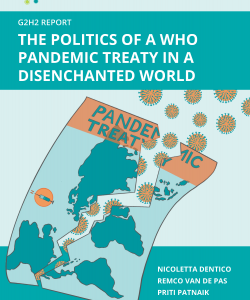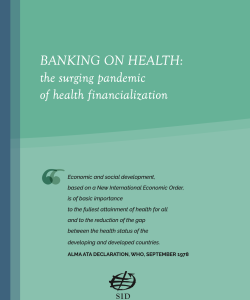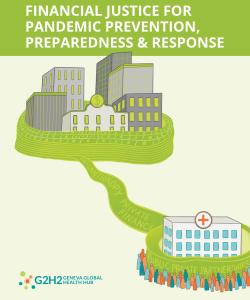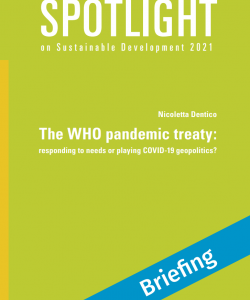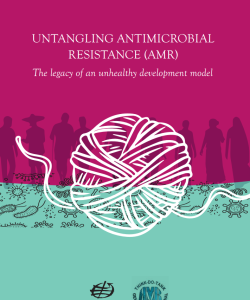The politics of a WHO pandemic treaty in a disenchanted world
After almost two years of battling an unprecedented health emergency, the world continues to be confronted with new waves of the COVID-19 pandemic and the global South finds itself in the grip of a new form of systemic inequality enshrined in the patently flawed vaccine distribution strategy. At an upcoming Special Session of the World Health Assembly, the World Health Organization and its member states are undertaking an effort to agree on negotiating a new international legal instrument for pandemic preparedness and response.
But does the world need a new “pandemic treaty”? Is it the right thing, at the right time? The Geneva Global Health Hub (G2H2) has unpacked these pertinent questions through research undertaken involving a broad range of experts including those who have concretely tackled the COVID-19 response in their countries. G2H2 has mapped the complexity of this treaty proposal and its potential implications for the future scenario of global health governance.
The resulting report launched by G2H2 on 24 November addresses the need for new approaches to the challenge of a pandemic future. In the wake of the harsh but real lessons that COVID-19 continues to administer, it focuses on some of the pathogenetic political and economic structures that must be recognized if the international community is serious about restoring democratic multilateralism and giving the world and the people a proper chance to better deal with future health emergencies and crises.

